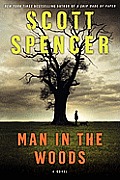 I don't know about you, but I enjoy reading about Sigmund Freud's theories. His model of the human psyche is fascinating. It involves a purely pleasure-seeking id ("Gamble, mud wrestle, drink, eat, have sex NOW!"); a scolding super-ego that casts morality in black-and-white terms ("What's the matter with you? You must obey every letter of every single rule all of the time!"); and the rational ego, which gamely attempts to strike a workable balance between the impulsive id and the harsh super-ego ("After work, I'll go home and make love to my partner. I'll be passionate but not weird.").
I don't know about you, but I enjoy reading about Sigmund Freud's theories. His model of the human psyche is fascinating. It involves a purely pleasure-seeking id ("Gamble, mud wrestle, drink, eat, have sex NOW!"); a scolding super-ego that casts morality in black-and-white terms ("What's the matter with you? You must obey every letter of every single rule all of the time!"); and the rational ego, which gamely attempts to strike a workable balance between the impulsive id and the harsh super-ego ("After work, I'll go home and make love to my partner. I'll be passionate but not weird.").To pay Freud back for the entertainment he's provided me with his ideas, I wish I had the chance to offer him some good book suggestions. I think he'd particularly enjoy Scott Spencer's Man in the Woods, Libby Fischer Hellmann's An Image of Death, and T. R. Pearson's Polar. Characters in these books are right up Freud's alley. They deal with questions about civilization and their ids or super-egos in ways that might make Freud nod, but they could also break your heart.
"It is impossible to overlook the extent to which civilization is built upon a renunciation of instinct." (Sigmund Freud)
When Scott Spencer's Man in the Woods opens, Will Claff is on the run. He left a comfortable life as an accountant in Los Angeles when he lost a $5,000 bet on a basketball game and didn't have the money to pay it off. Someone was going to come looking for him, but just who that was, Will didn't know. The faceless quality of this someone casts him into a sea of paranoia. Soon, everyone seems to be looking for him; everyone's actions are suspect, even those of a dog he stole from a woman who had befriended him in Pennsylvania. It is this dog that Will is abusing in a park near Tarrytown, New York, when a good man named Paul Phillips makes a stop in the park on his way home. To Will, Paul is that faceless man. To Paul, Will is a man who needs to stop beating his dog. In a minute, they are rolling on the ground.
"[Paul] is coldly angry, and even in his anger he mainly wants to put a stop to the whole fight before the man lands another lucky punch. And even as his anger increases--as the numbness in his lips turn to pain, and he wonders if that head butt has cost him a tooth--it is not the kind of anger that is a portal to madness. No. What is taking place is more like a realignment of inner forces, in which the voice of reason grows fainter and the voice of animal instinct becomes more and more dominant, expressing itself in a long, low, gutteral roar. Except for that interior roar, Paul feels strangely calm."When the fight ends, Will is dead, and a guilt-ridden Paul drives away with the dog in his truck. There is no question of abandoning the dog because it is "his witness, his confessor, he has seen it all and can still sit next to Paul, breathing with him, trusting him, the dog is the reason, the dog is what has been salvaged from the worst moment of Paul's life, the dog is the bridge which Paul walks upon as he inches his way over the abyss, the dog is God spelled backward." Paul will take the dog, now named Shep, home where he lives with his lover Kate Ellis, a recovering alcoholic who has written a best-selling inspirational book, and her 9-year-old daughter, Ruby, who were introduced in Spencer's A Ship Made of Paper.
Man in the Woods is a book of wry and stunning beauty, in which Paul, a carpenter whose work is so fine Rolling Stone's Jann Wenner employed him and a man who has always lived simply and followed his own personal code of honor, now feels set apart from his fellow humans because he killed a man. It's hard to say which Paul would find worse: that his killing remain undetected or be detected. He and Spencer's other memorable characters try to reassure themselves that they function in a rational world. As Detective Jerry Caltagirone says, "I don't accept the idea that things don't make sense. There's something out there, something that says this is okay and this is not okay." In Man in the Woods' waning days of 1999, amid fears of what Y2K will bring, Paul says that the things we think are going to happen, don't usually happen.
What happens in this book would make it an excellent book not only for Freud, but possibly for you, too. It is a psychological and philosophical thriller without the creepiness of a book written by Ruth Rendell/Barbara Vine. It provides a chance for contemplating violence; happiness; the relationship between humans and the natural world; faith; fate; responsibility; and love, involving both people and a dog.
"The first requisite of civilization is that of justice." (Sigmund Freud)
To what lengths will a person go to save a relationship with a lover? To bring a criminal to justice? To simply survive? These are questions examined in Libby Fischer Hellmann's An Image of Death. The book begins with a prologue in which a young woman who has lost a tooth is making her way to a house in a bitterly cold Chicago. The landscape is so menacingly empty, so flat, that she wonders if she will take a step and fall off the edge of the world. In a bit, the scene changes to a different part of Chicago, where protagonist/narrator Ellie Foreman, a documentary video producer, receives a mysterious video that appears to show a woman being murdered. She feels compelled to investigate even after delivering the video to the police. This makes a full plate for her, as she's juggling a documentary on foster children; her teenage daughter; and her father, who lives in an assisted living facility nearby. Ellie's lover, who was raised in foster care, is obsessed with a desire for blood ties. Searching for his relatives in Europe is the most important thing in the world to him and, suddenly, his efforts may have produced results that threaten his relationship with Ellie.
While this tale unwinds in the present United States, in alternating chapters the clock turns back in the crumbling Soviet Union. Best friends Arin and Mika try to cope in Georgia as their husbands' military careers evaporate when rubles stop flowing in from Moscow. Months go by, and there is no money. There are no jobs. These brave young Georgians make reluctant compromises with their integrity just to survive. And when this story connects with the one years later in Chicago, it's clear that several murders result from their decisions.
Hellmann's writing is very well done, whether she's relating how the facets in a diamond are cut, creating dialogue, or painting the landscape of Chicago. She is effortlessly entertaining, and she has a gift for making a reader see the world through her characters' eyes, such as Ellie's, below:
"The storm dumped five new inches of snow on the ground, but the streets were clear by ten. So was my driveway, thanks to Fouad, who must have plowed before dawn. I was grateful. I was nursing a wicked hangover; I doubted I could have picked up a shovel. Turning onto Happ Road, I had to shade my eyes. Winter on the North Shore can look like one of those Currier & Ives scenes you see on cookie tin lids. Today, though, the sun shot bursts of light through the trees like artillery fire. Everything was too bright, too intense, too loud."
An Image of Death is the third book in Hellmann's Ellie Forman series. It isn't necessary to read the books featuring this likable protagonist in series order, but An Eye for Murder is first. Georgia Davis, a cop in this book, becomes a private eye in her own series, beginning with Easy Innocence. By the way, we're thrilled to say that our interview with Libby Fischer Hellmann will be published here this Wednesday, November 30.
While Hellmann's and Spencer's characters grapple mightily with their super-egos, one of T. R. Pearson's characters does no such thing in Polar. Clayton Dupree spends most of his day sitting in a chair with a head-grease stain and ruptured armrests, watching XXX-rated movies on his TV's Satin Channel. When he gets a chance, he likes to tell other people about the movies' plots, and he uses the meeting of his thumb and forefinger along the length of his arm to illustrate the male star's endowment (although one time Clayton "drew both hands apart as if he were describing a trophy carp"). The reader meets Clayton in the grocery checkout line, where he seems his normal self, "phlegmy, unshaven and fragrant in his ordinary fashion, wafting anyway his tangy burly leaf and sweat bouquet with his customary hint of livestock dander and his undertone of Scope." Clayton is in the middle of one of his pornographic descriptions when he suddenly stopped talking and "went exceptional on us." Here's how the nameless narrator, a resident of Virginia's Blue Ridge, describes it:
"That's when it happened. We're most of us in general agreement about that, but we're fairly fractured as to what exactly transpired. There's a school of thought that Clayton fell prey to the bar-code scanner, that the laser somehow bored clean through his pupils to his brain and fused together a couple of pertinent vessels. Among the Merck Manual devotees, spontaneous hemorrhaging is a popular choice, but that Quisenberry has sworn up and down that Clayton never so much as twitched or betrayed in any way that he was suffering some variety of distress. That leaves the considerable faction who subscribe together to the view that Clayton, with all of his vulgar talk and his pornographic pastime, had sorely tried the patience of the Maker who'd seen fit to render him simple, after a fashion, with His wrath."Whatever the cause, the result is that Clayton lost all interest in pornographic movies. He now asks people to call him Titus, gets out of his chair only to add details with a stick of charcoal to a sting ray-shaped picture on his wall, and issues cryptic little announcements that foretell the future, but in ways that are understood only after the fact. So when Clayton says, "It's Melissa now. Sometimes Missy. Never Angela. Never Denise," a chill shoots straight through the laconic Deputy Sheriff Ray Tatum, who is still searching for Miss Angela Denise Dunn, who was a 3-year-old when she took a walk in the woods three years earlier and disappeared.
One doesn't read T. R. Pearson for the plot. There is a plot, but the joy is in the serial digressions, colloquial prose, and irreverent descriptions of the endearingly eccentric characters who populate Pearson's books of satire set in rural North Carolina and Virginia. This is a book that made me laugh out loud, but some tragic and tragicomic events and a general thread of melancholy tenderness weaving through the narrative make Polar, as well as Pearson's other books, a bittersweet and rewarding read. This is the second book featuring Deputy Ray Tatum. Blue Ridge is the first. After Polar comes Warwolf. I'd also recommend A Short History of a Small Place for readers who'd like to try this neo-Faulknerian writer. Pull up a chair and let Pearson engage your id.
One more id-engaging recommendation: any cookbook by dessert-maven Maida Heatter. Try her Maida Heatter's Best Dessert Book Ever. Heatter writes recipes that any person can conquer. And now, because I can't close without a quotation by Freud involving a man's mother: "A man who has been the indisputable favorite of his mother keeps for life the feeling of a conqueror."
















